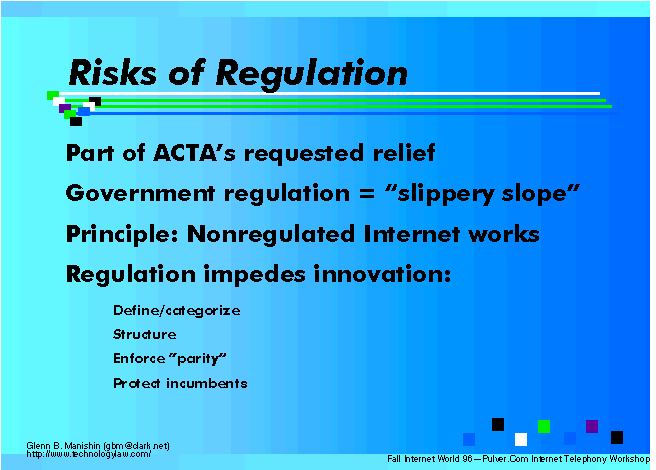
Why should the Internet community care about potential regulation? The simple answer is that ACTA, a group of small telecom resellers, petitioned the FCC in March 1996 to regulate the Internet's "telecommunications" functionalities -- and specifically to ban the sale of all Internet telephony software. The ACTA petition galvanized the computer and Internet industries (including my client Netscape Communications Corp.) into placing FCC regulatory issues at the forefront of their government relations agendas.

While there is little chance that the FCC will grant ACTA's request, the broader issues raised are significant -- in the long run regulation of the Internet would be a "camel's nose" syndrome, a slippery slope with little to restrain the government, however benignly at first, from dominating the architecture, standards and governance of the new medium. Since its commercialization and the end of NSF's control, the Internet has functioned extremely well as a decentralized, non-governmental, non-regulated medium. It's "not broke," so there is little need for the government to "fix" anything.
Regulation is also a game that the computer and Internet industries are not at all equipped today to win. For every lawyer and lobbyist working on behalf of the Internet, there are 20 or 200 working to safeguard the interests of established telecommunications firms. Regulation would directly compromise the extremely rapid pace of technological innovation that has made the Internet such a success story. At least in part, this is because regulators naturally have a bureaucratic imperative to define and categorize new technologies in the "cubbyholes" used for prior regulation, and to structure regulatory rules in ways that, almost by definition, favor incumbents over new entrants.